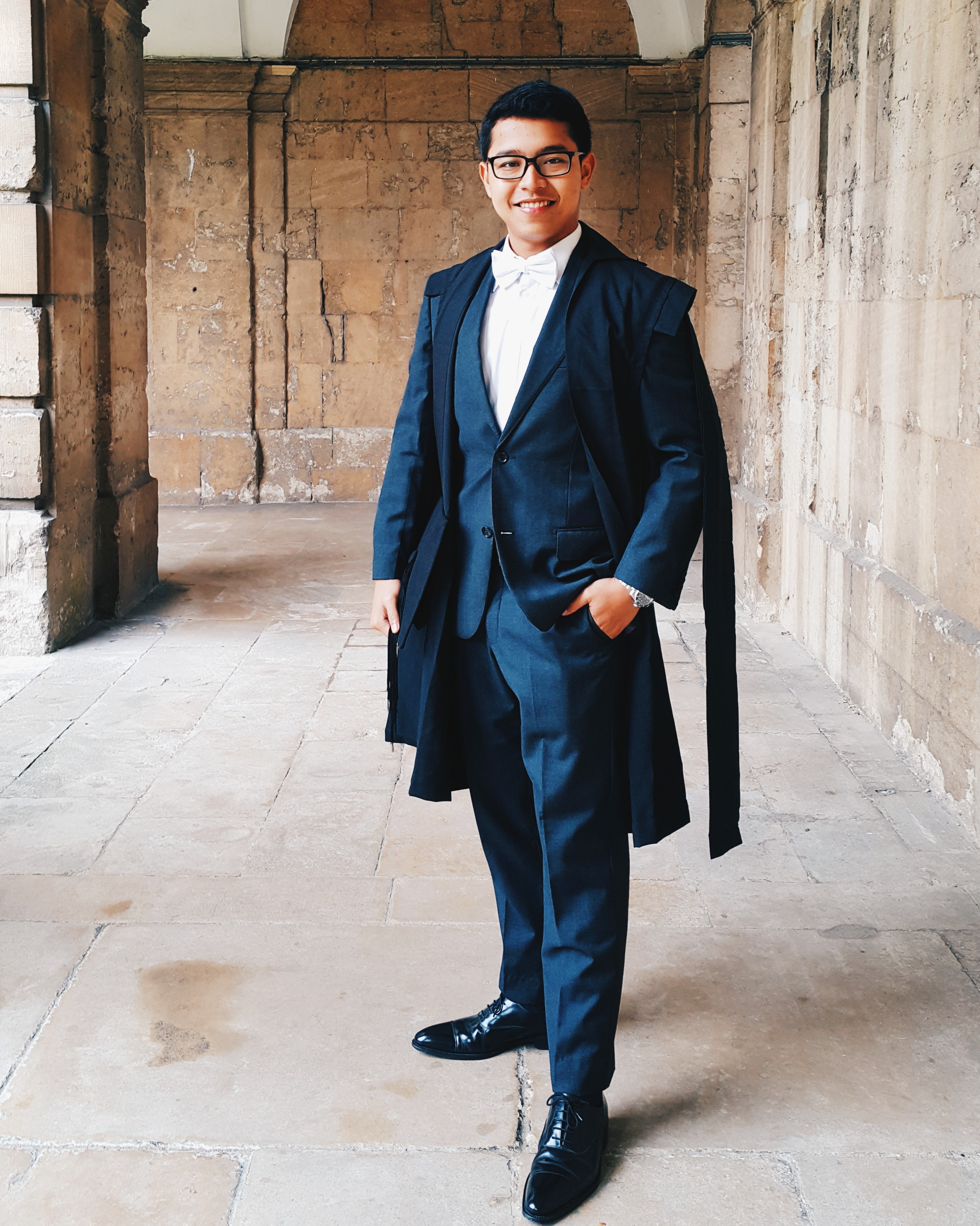Alumnus: Muhammad Rifky Wicaksono
Muhammad graduated from the MJur in 2017

As someone who comes from a civil law jurisdiction, one of the most frequently asked questions I get is: 'why take your master’s degree at Oxford?'. To be fair, that is a perfectly legitimate question. After all, the way that law operates in common law and civil law systems can be strikingly different and there are valid concerns as to whether what I learn here would be applicable back home in Indonesia. Aside from the obvious answer to such questions - that is to live my childhood fantasy of going to school at Hogwarts and occasionally pretend I’m Harry Potter - there are three main reasons why I chose to undertake my master’s degree in law at Oxford. Specifically, all three reasons have to do with the unique and world-renowned legal education that is provided in the Magister Juris program (MJur).
First and foremost, the MJur distinguishes itself from the LL.M. for a very important reason; it is the only graduate law degree in the world (alongside the Oxford BCL) which utilizes the tutorial system as part of its curriculum. This was the primary reason I chose the MJur. The tutorial provides a very intimate space between a small number of students and a tutor, where the students are expected to analyse, critically examine and defend their view points on fundamentally contentious areas within the law. As all lawyers know, the law is not always black and white, and there are inevitably grey areas which pose difficult and often unresolved questions. In the tutorials, we are expected, and trained, to tackle these difficult questions head on.
Indeed, the tutorial is one of the most challenging and demanding intellectual experiences I’ve ever had. Yet at the same time, it is also by far one of the most rewarding and enlightening. What makes the learning experience in tutorials so valuable is that it pushes you to go beyond an understanding of what is written in the textbooks, and to develop your own novel ideas and arguments; a skill of great importance not only for academics, but also for lawyers and judges alike. The Oxford tutorial is of such profound significance that the eminent evolutionary biologist, Richard Dawkins, once remarked: 'If there is any "me" to be the making of, it was the Oxford University tutorials that did it.'
Secondly, I was drawn to the MJur by the distinctive way in which the course is structured. Having taken my undergrad in Indonesia, I had been accustomed to the semester system, where in each semester we would learn a number of different subjects. The MJur is different. It divides the academic year into three terms. Each student will then undertake four options which they will study over the year. Consequently, instead of studying many subjects at once, students in the MJur program can focus their time and energy into studying those select few areas of law which fall in their field of interest. I realized that this would expose me to a high degree of depth and academic rigor in those areas which I know I will specialize in. This course structure also answers those concerns over applicability of subjects because I can be sure to take those options which I know will be relevant and well suited to the needs of my career later on.
Finally, I decided to pursue the MJur degree for the very simple reason that studying in Oxford will provide me with the priceless opportunity to learn from some of the most influential scholars in legal academia. Ergo, it is not uncommon for one to be academically star-struck when one studies at Oxford. I distinctly remember having this experience early in Michaelmas term when I was reading through a landmark case in the ECJ and I was shocked to find that the judge quoted a journal article written by my lecturer as a basis for the Court’s decision. The breadth of knowledge, the fluidity in teaching, and the passion for law of the professors in Oxford are truly remarkable, and it is a privilege to study under their tutelage.
Additionally, the feeling of being star-struck wasn’t just from my professors, it also came from my peers, who are no doubt among the best and brightest minds I’ve ever met. In all honesty, in the beginning it did feel quite intimidating to be surrounded by so many extraordinarily talented young women and men. Despite this initial anxiety, however, over the course of just one term I’m glad to say that I found my friends in the MJur program not only to be sources of great inspiration in class, but also to be among some of my closest friends in life. It is a humbling thought that any one of these individuals might one day be a prominent professor, a distinguished judge, a minister of law, and maybe even the president of a nation.
After completing my degree, I hope to go back to academia and to teach law in my home university in Indonesia. That is the way in which I believe I can make a small difference in my country, and this desire to somehow make an impact to society is a sentiment that I share with many of my friends in the MJur program. Looking back at what our predecessors have achieved, I am more than confident that our education in Oxford will provide us with the tools necessary to achieve our goals. I may not be there yet, but I can tell you that choosing to study at Oxford was one of the best decisions of my life.
Muhammad Rifky Wicaksono is the elected Class Representative of the 2016/2017 Magister Juris student body, and a Jardine-Oxford Scholar. Prior to his studies, he was an assistant lecturer at the Faculty of Law, Universitas Gadjah Mada in Yogyakarta, Indonesia.

